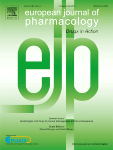An investigation at Karolinska Institute has led to the retraction of a paper about drug treatments for alcoholics, after concluding the article contains a “very careless data workup.”
The paper, “Memantine enhances the inhibitory effects of naltrexone on ethanol consumption,” found that the drug memantine (normally used to treat Alzheimer’s) enhances the effects of naltrexone in rats, which blocks the high of alcohol. It was published in the European Journal of Pharmacology and has been cited 10 times, according to Thomson Scientific’s Web of Knowledge.
However, its conclusion is now “unreliable,” according to the retraction note:
This article has been retracted at the request of the Department of Clinical Neuroscience, Karolinska Institute, Stockholm, Sweden. An investigational committee has come to the conclusion that the article represents a very careless data workup and therefore that the results and conclusion should be regarded as and unreliable. The publisher apologizes for the inconvenience caused.
After emails to corresponding author Alexander Kuzmin and last author Sture Liljequist at their Karolinska Institutet addresses bounced back, Jan Hillert, head of the Department of Clinical Neuroscience at Karolinska, filled us in:
Kuzmin is no longer (several years) at Karolinska, and to my knowledge not within science. Fellow senior author Liljequist died some 6 years before.
When asked for more details on the investigation, he said:
The investigation was prompted by a report from a person close to the research group itself. I can say so much that there was documentation missing for part of the reported animal experiments, the reasons remaining unclear.
Other scientists are still looking into whether naltrexone and memantine could affect alcohol consumption. A team at Yale is recruiting human participants that test the drugs in a clinical trial:
These medications are hypothesized to reduce craving and number of drinks consumed prior to and after exposure to the initial drink of alcohol and during the three hour drinking period.
We contacted the editor in chief of the journal, and will update this post if we hear back.
Like Retraction Watch? Consider making a tax-deductible contribution to support our growth. You can also follow us on Twitter, like us on Facebook, add us to your RSS reader, and sign up on our homepage for an email every time there’s a new post. Click here to review our Comments Policy.
